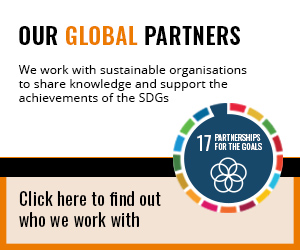CB Bhattacharya, H.J. Zoffer Chair in Sustainability and Ethics at the University of Pittsburgh, distinguishes between what causes a company to succeed, or fail, in becoming more sustainable.
Although many businesses claim to have a sustainability plan, they often don’t practise what they preach: It’s shocking that only two percent of companies actually achieve their sustainability goals (Achieving Breakthrough Results in Sustainability 2016 report).
Bhattacharya carried out extensive research to find out what separates success from failure in the sustainable business front.
He spoke to over 100 CEOs, managers and regular employees at 25 multinational companies that have committed to becoming more sustainable.
Through multiple interviews, surveys and scholarly research, Bhattacharya found out the key contributors for a company succeeding in sustainable practice: embed sustainable practise into the core of the workplace and create unity amongst employees.
Deprioritse profit
When companies let profit maximisation become their number one priority, environmental and social responsibilities take a back seat. Unilever, consumer goods company, successfully prioritise sustainable development above profit.
Since their CEO Paul Polman pledged “to make sustainable living commonplace”, employees have shown a feeling of valuing the greater good higher than profit. One factory worker in India says: “I would rather save lives than sell soap.”
Integrate sustainability
Failed companies were discovered to isolate sustainability initiatives from their main work, making it more difficult for the organisation to take sustainable development seriously.
In contrast, companies that aim to reduce their waste or carbon emissions tend to succeed in this when they make sustainability an intrinsic part of their core purpose and communicate this commitment to the entire staff.
Bhattacharya demonstrated this through analysis of data on over 3,000 companies during a 10-year period. With an “overarching vision”, companies are a lot more likely to perform better in many aspects, including financially.
Engage employees
Creating a “shared purpose” amongst employees can significantly increase the success of a company trying to be more sustainable.
If people feel part of a community and motivated to work together, their plans to protect the planet are more likely to thrive.
Marks & Spencer employees visit local communities to show the impact of climate change. The company also arranges informal meetings where employees can discuss the climate emergency away from their working environment.
These efforts prove to be effective and the companies that employ them have reduced their carbon footprint, waste and water use.
Employees “prefer to work at companies that serve a higher purpose”. So sustainable development not only reduces a company’s impact on the environment, but also enhances employee satisfaction and sense of belonging.
For more on this research, CB Bhattacharya’s new book ‘Small actions, big differences‘ includes the full project and results.
Image courtesy of iStockPhoto.com.






